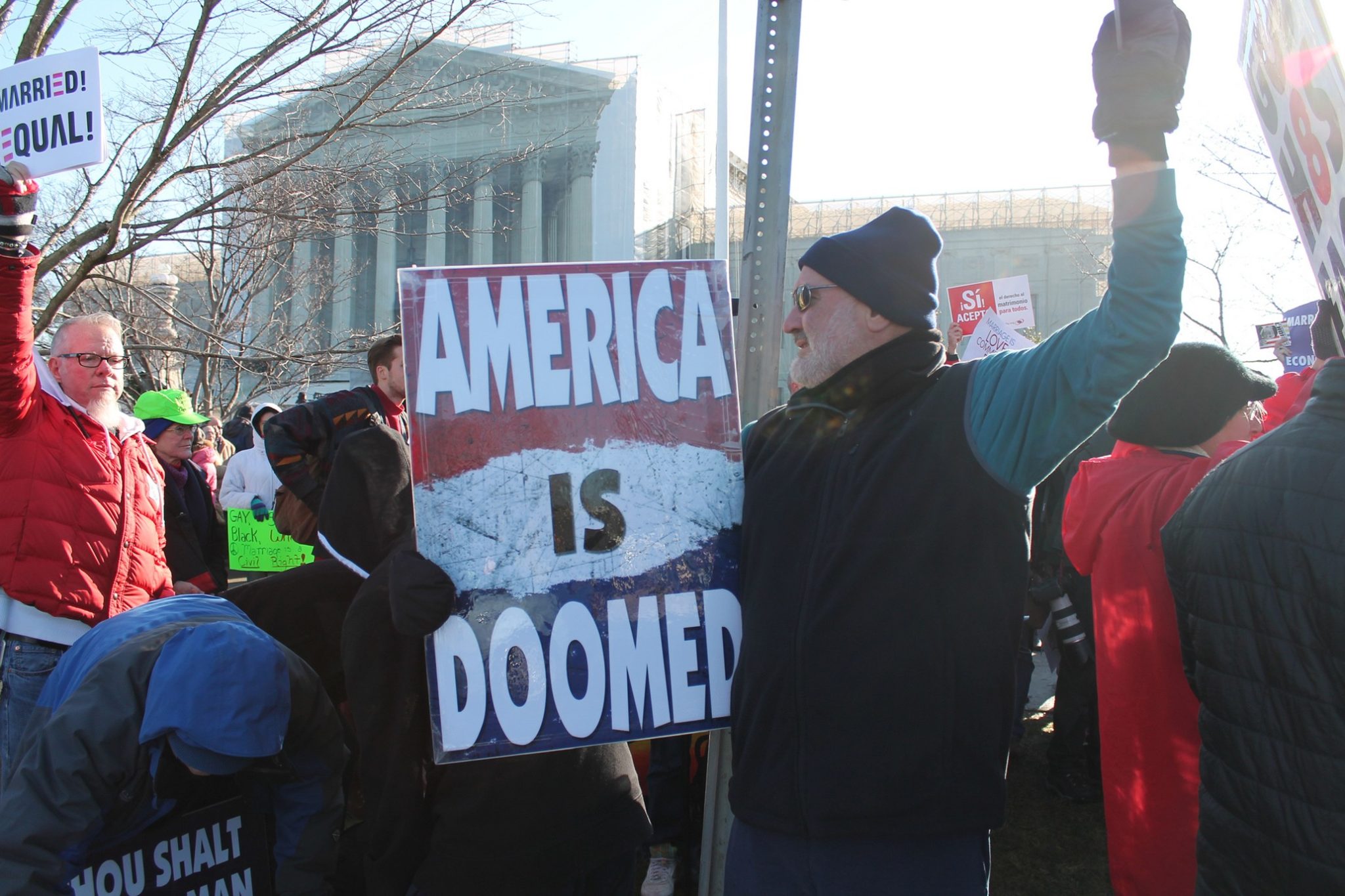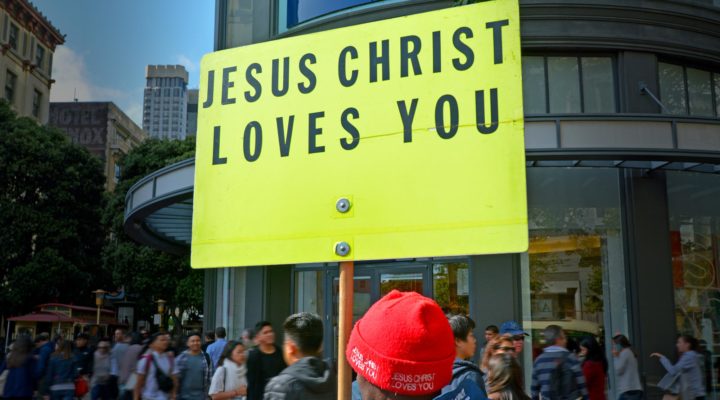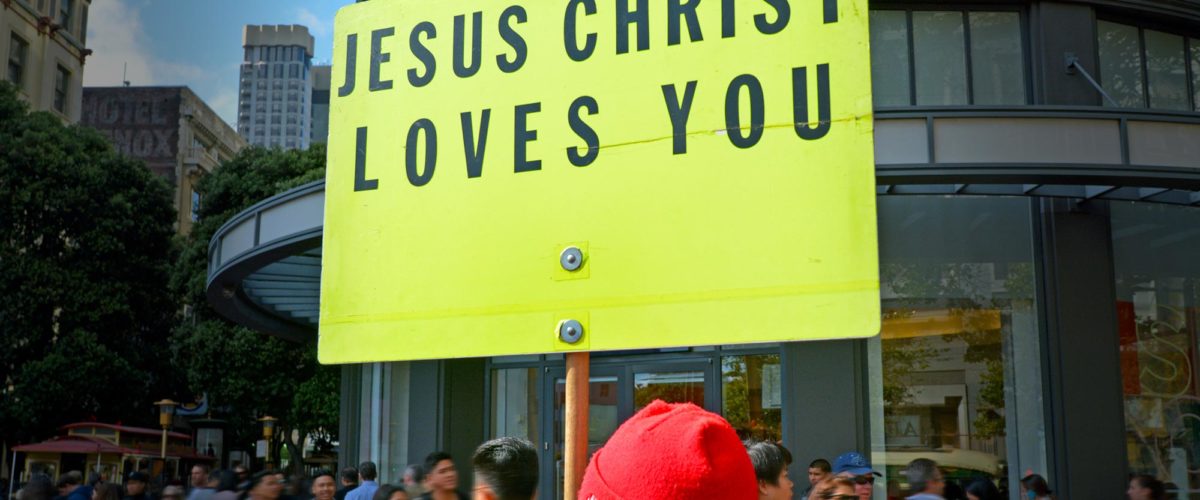Joe Phelps admits he is a Christian extremist.
For years, he’s being spreading his brand of faith all over Louisville, Ky., where he’s the pastor of Highlands Baptist Church. And now he admits he’d like to see it catch on across the country.
The “radical” brand of Christianity Phelps is behind is one that he describes as compassionate, inclusive and giving.
“We’ve got to be extremists in abundance and generosity, not in fear and scarcity,” he said.
Unfortunately, he said, this softer, gentler form of extremism isn’t what’s in these days – and many Americans are religiously unaffiliated believe that all too well.
What they’re seeing instead, Phelps and others say, is a gun-loving, refugee-hating brand of the faith that is painting all or most Christians with a broad, judgmental brush.
And now there is some research suggesting just how low Christianity has fallen in the court of public opinion.
“The decades-old trend that Christianity is irrelevant is increasingly giving way to the notion that Christianity is bad for society,” the Barna Group said in a new study titled “Five Ways Christianity is Increasingly Viewed as Extremist.”
Phelps said he regularly encounters people who assume all Christians are like those they see on television and social media: theologically and politically ultra-conservative and, above all, intolerant.
He sees it, too, in the very public examples set by the likes of Franklin Graham, Jerry Falwell, Jr. and Donald Trump.
“I don’t blame the average person who is not involved in a faith community for being as afraid of Christian extremists as they would be of Muslim extremists,” Phelps said.
Negative opinions
The Feb. 23 Barna study uncovers a broad range of attitudes about what constitutes extremism. Examples range from condoning violence, refusing service to gay patrons and withholding medical care to children to speaking in tongues, reading scripture in public and holding religiously motivated public demonstrations.

Some Christians continue to protest the issue of marriage rights for same-sex couples, prompting many to feel that Christians are intolerant. (Creative Commons photo)
“The most contentious issues are the ways in which religious conviction gets expressed publicly,” David Kinnaman, Barna’s president and director of the study, said in the report. “In a religiously plural and divisive society, various ‘tribes’ … are vying to decide how faith should work.”
Evangelicals and some Catholics are especially viewed through a negative lens.
“This is most significantly felt when it comes to social views, such as evangelicals’ convictions on same-sex relationships,” Kinnaman said in the report.
‘Who we are not’
But some of those interviewed by Baptist News Global said it’s hard to take some of criticisms seriously.
Ellin Jimmerson, a Baptist minister and immigration activist in Huntsville, Ala., said she’s troubled by the idea that some people view donating money to religious institutions or adhering to dietary restrictions as “extreme.”
“The range is so wide – from using violence for religiously motivated reasons to sitting in the public square reading the Bible quietly – that it almost doesn’t have any meaning,” said Jimmerson, who performed some of the first same-sex weddings in Alabama.
Winn Collier said he was thrown off by the study as well.
Most people in his circles of friends, which includes theological conservatives, have expressed dismay at Trump’s views, said Collier, the pastor at All Souls Church in Charlottesville, Va.
“I can’t think of a single mainstream evangelical who fits that bill,” he said.
No doubt there are plenty of “thoughtless Christians” who misuse scripture for political gains, he said. But there also are a lot of Americans who are getting their ideas about Christians from cable news and talk radio.
“It’s incumbent on us to say who we are and who we are not,” Collier said.
When Christians see their faith misrepresented in the news or online, he said, “it should motivate us to return to our truest self and strive to be more and more faithful to … that we profess we believe.”
‘An extremist for love’
Baptists especially need to do that, Jimmerson said.
“I think Baptists have, fair and square, gotten the reputation of being first, racist, and now homophobic,” she said.
When she performed gay weddings in 2015, Jimmerson said she often found people surprised and grateful to see a Baptist who wasn’t condemning them or a loved one.
“People came up and hugged me and cried and said they grew up Baptist and ‘thank you for helping me find my way back to the Lord,’” she said.
It’s up to her and other disciples of Jesus to show that there is more than one way to be a Christian – and an evangelical, Jimmerson said.
Those lessons begin through a self-understanding of God as all-loving and generous, Phelps said. That means coming from a place of abundance.
The gratitude generated by that approach will naturally translate into a discipleship that is more joyous and service oriented, he said. That, in turn, will stand out to those who might have media-generated notions of faith.
“Shame on us” for not doing so sooner and in greater numbers, Phelps said.
“We have not been as evangelistic about our understanding of the gospel as other people have been about their understanding of the gospel,” he said.
Doing so definitely does not mean showing the world what moderate Christians or Baptists look like.
“I don’t want to be moderate,” Phelps said. “I want to be an extremist for the love of God and for the gospel.”





